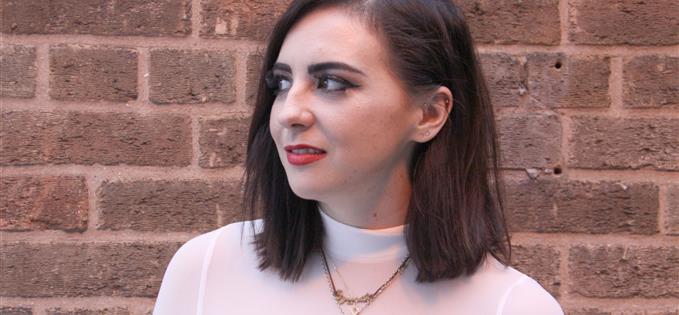THERE are over 7 billion people in the world, and every person is a living, breathing storybook. For me, the dreaded question has always been: ‘Where are you from?’
Sigh, and so it begins. ‘
‘I’m half Egyptian, not Ancient Egyptian
I’m from London’ (yes, it counts as London if there are red buses). ‘No, I mean where are you actually from?’ You would think I’d said I was from Narnia. ‘Oh, you mean my parents? My dad is Egyptian’. At a predominantly white school, being half-Egyptian meant growing a thick skin. My top three were: ‘Does that mean you call your mum ‘mummy’?’, ‘Do you live in a pyramid?’ and ‘Do you walk like an Egyptian?’ with choreographed in tandem moves. Yes, I call my mum ‘mummy’, I absolutely live at 232 Pyramid Avenue, and I haven’t been able to resist walking without my arms forcibly bent at right-angles since I was born. Playground antics. Then during Freshers’ week, I went to a pub quiz, and one of the questions that stumped my team was about Ancient Egypt. ‘Amirah, you’ll know this one’, she said, minus any indication she was remotely joking. ‘I’m half Egyptian, not Ancient Egyptian’ I said bemused.
I’ve spent 27 years explaining my hyphenated identity, being a ‘mixed other’ on the monitoring forms, but I’ve always questioned why it even matters. Is the question borne out of curiosity, of the need to assert some form of skin-colour superiority, or to try to neatly fit me into the confines of an ethnic box?
Why is that question so annoying?
It serves to single out certain people based purely on their ‘exotic’ looks, or the fact that their name is ‘unusual’. For example, if you’ve ever been to a new class, and the tutor has asked you to tell a group of complete strangers who you are and where you’re from, it’s inoffensive. But if the only brown person at the table was the only person to be asked ‘Where are you from?’, the motive appears questionable. It’s the unspoken subtext that can cause offence: it becomes an inquisition to define race, and not to identify a person’s origin. Is the question that’s being asked ‘Why aren’t you white?’ The majority of free-thinking liberal people would never be audacious enough to ask that question, but it seems to start from the assumption that the norm is ‘White – British’, and anyone who doesn’t conform needs to explain themselves. Why their English is so good, or not good enough, why they’re not religious if their parents are, and whether they’ve ever been to their parent’s native country. Context is key. Is it curious inquisition, or are the questions asked in a bid to confirm or negate a stereotype you might hold about people from X country, or of Y religion?
 Amirah
Amirah Here’s the other thing. I’m a sum total of two diametrically opposing cultures, two different religions, and two different nationalities. I wasn’t born in Egypt. But my upbringing was stricter and tethered towards the Middle Eastern norms and values of my father despite being born in Britain. Between countries in the Middle East, there are differences in custom and culture, and even between nationals of the same country, there will be regional variances. The emphasis placed on my education and my compulsive need to succeed are by-products of what I term the ‘immigrant mentality’: my father has always willed me to take full advantage of the opportunities he never had, and to reach heights that were beyond his grasp in his native Egypt. I’m a product of two halves, but his cultural contribution has defined me. I was born in the UK, raised in the UK, and educated in the UK. I’m ‘British’, but some days, I feel more Egyptian. My passport doesn’t succeed in defining my lineage or real-time fluctuating identity. To ask me where I’m really from fails to consider the prevalence of culture in how I define myself from one day to the next.
I don’t think where you or your parents are from is what defines you. People are complex. Religion has its practices, culture has its customs, and nationality can command patriotism. Heritage does not equate with identity. Likewise, I might be from London, but Manchester is my home.
Taiye Selasi in her TED talk urges us to substitute the question of ‘Where are you from?’ with ‘Where are you a local?’ Identity is all about how you identify yourself. We’re all a collation of our ancestry, our upbringing, where we’ve lived, who we’ve loved and where we’ve worked. We’re all unique and infinitely more complex to neatly fit an answer to ‘Where are you really from?’
Follow @MissAmeerkat on Twitter










